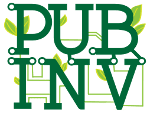The COVID-19 pandemic has cost five million lives so far with the real death toll likely five times higher. It has exposed an urgent need for effective global action while highlighting our collective lack of preparedness to respond to acute global health crises. Humanity must learn from this experience and be better prepared for future global health crises which are unpredictable but statistically certain. A fundamental lesson of the pandemic is that by sharing technology we can increase the health and wealth of all people everywhere.
We, the undersigned, believe that:
Open, shareable, repairable, medical technology will make us all healthier.
We assert that over the next decade:
- The World Must: Develop a shared, open, transparent library of fully tested, easily repairable open source designs for medical devices which any firm in any country may use as a starting point for properly regulated manufacturing and marketing plans.
- Grantmakers Must: Invest in open source engineering organizations and/or universities to develop open source, highly tested, fully repairable, locally manufacturable designs of sophisticated medical devices in order to be able to ramp up production quickly in future acute crises. Grantors must insist that medical technology be fully published and licensed using free-libre open source licenses. Grantors should value contributions to a modular, shared global library of medical technology.
- Makers Must: Turn their talents to impactful projects by designing, building, and testing prototype open source medical devices. Makers must organize themselves into networks capable of quickly making millions of devices on a global scale during an acute crisis.
- Entrepreneurs Must: Develop new ways of manufacturing, marketing and distributing medical devices which do not depend on closed, secretive, confidential, restricted technology. Business people must develop ways to make profits by using open source designs as a starting point and sharing know-how.
- Engineers Must: Develop shared testing,evaluation, and maintenance capabilities that can be easily and transparently shared and effectively used to maximize the value of existing and future stocks of medical equipment. They must establish organizations to augment peer-reviewed publication and governmental regulatory processes,including the development and publication of shareable test protocols and procedures, a corpus of actual test data, and technical standards for the expression and sharing of test data. Transparent open source medical technology will eventually be safer and more trustworthy than proprietary, secretive technology.
- Administrators Must: Advocate for the right-to-repair and the right-to-test medical equipment in a fully transparent and legally shareable manner and prefer open, repairable equipment to closed, unrepairable equipment. They must be empowered to conduct acceptance testing on all receipts of equipment and reject any equipment including donations that fail user acceptance testing.
- Governments Must: Formalize, support and fund informal maker communities and small manufacturers to enable them to function as an effective distributed emergency innovation and manufacturing response network to respond to future crises.
- Universities Must: Encourage exposure to, and adoption of, transparent, open source technologies and practices by future engineers, doctors and business people.
- Regulators Must: Work together within and across nations to develop and harmonize formal guidance and regulatory approval pathways to validate open source medical designs. By making the regulatory application process more transparent and by encouraging the sharing of data which is not specific to a firm’s manufacturing and business plans, regulatory bodies can support local manufacture and supply chain resilience. This will facilitate the rapid deployment of safe and effective technologies across geographies during times of crisis.
- International agencies Must: Embrace open source innovations and networks as part of an effective international response to future pandemics and global health crises by including their representatives in multilateral pandemic preparedness and response decision-making structures.
Comments on The Open Medical Technology Manifesto (DRAFT)
The Open Medical Technology Manifesto (OMTM) is a draft written by Robert L. Read, Leith Greenslade, Victor Suturin, Victoria Jaqua, Sabia Abidi, and Nathaniel Bechard.
It is the theme of the RespiraCon II free, virtual, conference hosted by Public Invention, Rice 360, and Sirius Global. At the conference on January 29th and 30th, we will formally invite signatories to the manifesto. Until then, please comment below or send comments to read.robert@gmail.com.

When war comes those who have necessary skills are obligated to turn them toward victory if the cause is just, and all must cooperate. Microorganisms have no morals, and constitute the most malicious foes. Our megalopolises offer fertile ground for their growth.
Simply letting “business as usual” take care of the problem is insufficient, and we must as a society rise to meet the challenge with unleashed creativity. This manifesto sets forth the outlines of how we can work together to ward off worldwide pandemics we know will continue to arise.